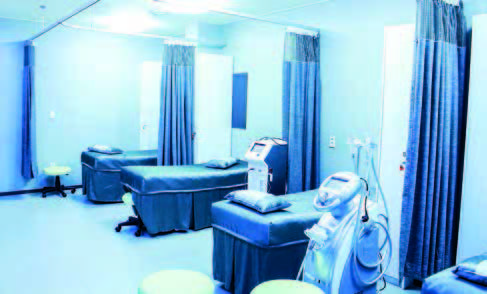By Dr Zeyar Win
The Ministry of Health oversees the integration of private healthcare into the existing framework. Amidst private healthcare expansion, their focus is on maintaining public safety, quality care, and affordability.
In any nation, a population that enjoys good health and longevity serves as a crucial driver for socioeconomic development. The Human Development Index (HDI) is used to evaluate a nation’s development. The HDI is an index measuring national socioeconomic development based on combining measures of education, health and adjusted real income per capita. Therefore, the attainment of longevity and healthy social lives is indicative of a nation’s progress. Governments often prioritize enhancing healthcare to improve the longevity and well-being of their citizens.
Public healthcare comprises two fundamental facets: disease prevention and the administration of safe medical care in response to illnesses. The Ministry of Health assumes complete responsibility for the public health domain, which entails supervising large-scale vaccination campaigns to mitigate infectious diseases, conducting disease surveillance, and implementing effective control measures. The Ministry also works to reduce the spread of diseases such as HIV, tuberculosis, and malaria and to control the prevalence of non-communicable diseases such as hypertension and diabetes mellitus through national control programmes.
At the same time, public hospitals are being established with the aim of delivering safe and effective healthcare services to the populace. Furthermore, arrangements are being made to alleviate public out-of-pocket healthcare expenditures.
Due to the high costs of medicines and medical equipment, coupled with limitations on human resources, it is challenging for most countries to deliver socialized medicine. These challenges are particularly acute in developing countries, where it is financially unfeasible to cover healthcare costs for the entire populace. Consequently, despite the governmental prioritization of essential healthcare expenditures, accessibility remains inadequate. Thus, private healthcare services play a crucial role in meeting the daily healthcare needs of the public, even in developed countries.
The Ministry of Health is, therefore, tasked with managing the integration of private healthcare within the necessary framework. As private healthcare expands, ensuring public safety, quality care, and affordability remains primary. The Ministry of Health continuously monitors and evaluates the development and expansion of private healthcare services.
Private hospitals and clinics that support and enhance the nation’s healthcare system must be well-organized and properly accredited. The Ministry of Health acts as the chief regulator of private healthcare services, emphasizing the provision of adequate healthcare and ensuring patient safety.
In that situation, the government must regulate private healthcare services by enacting a law. The Law Relating to Private Healthcare Services was enacted on 4 April 2007 by the State Peace and Development Council (Law No 5/2007) to regulate private healthcare services. Subsequent revisions led to an amendment, which was enacted by the Pyidaungsu Hluttaw (Law No 14/2013) on 28 June 2013.
To accomplish this, the government has established the Central Body for private healthcare services, comprising no more than 21 members. This body includes the Union Minister and the Deputy Minister for the Ministry of Health as Chairman and Vice-Chairman, the Director-General of the Department of Medical Services as Secretary, as well as heads and representatives of the relevant government departments and organizations and representatives of the non-governmental organizations as members.
The objectives of this legislation include several key aspects: to develop private healthcare services in accordance with the national health policy; to participate and carry out systematically private healthcare services in the national healthcare system as an integral part; to enable utilizing the resources of private sector effectively in providing healthcare to the public; to enable the public to choose as desired in fulfilling their needs for health by establishing private healthcare services; to enable the provision of quality services at fair costs and to take responsibility.
Under the authority of the Central Body, a working committee and state and divisional supervisory committees have been established to manage private healthcare services more effectively, with continuous monitoring. The Central Body provides guidance in accordance with the national health policy to maintain and enhance the quality of private healthcare services. The Central Body is primarily responsible for issuing or refusing licences for the operation of any private healthcare services and for inspecting and supervising private healthcare services to ensure compliance with prescribed terms and conditions.
In monitoring private healthcare services, the Ministry of Health evaluates the quality of healthcare personnel, the conditions of hospital and clinic buildings, and compliance with fire safety regulations. Additional considerations include tax compliance, refining treatment techniques, and improving service quality, all in alignment with periodically updated government policies.
Private hospitals and clinics that violate laws, regulations, or directives face various administrative actions, such as warnings, imposing the stipulated fine, suspension of the licence for a limited period, cancellation of the license and legal action upon conviction.
Government regulations are essential, and public cooperation is equally necessary to enhance the quality of private healthcare services. Significant improvements in safety, patient satisfaction, and health outcomes can be achieved through active patient collaboration, contributing to their safety and the overall healthcare system. The Ministry of Health remains attentive to patient feedback.
In conclusion, the development of private healthcare services is imperative, and their cooperation with state regulations is crucial to ensuring safe and quality healthcare for the public.


